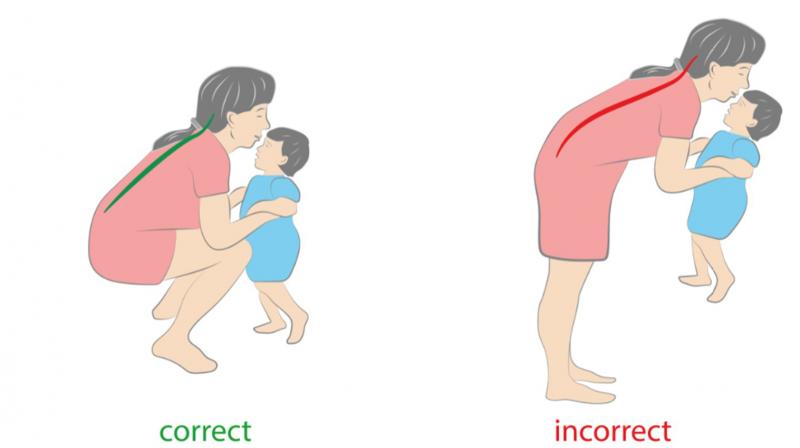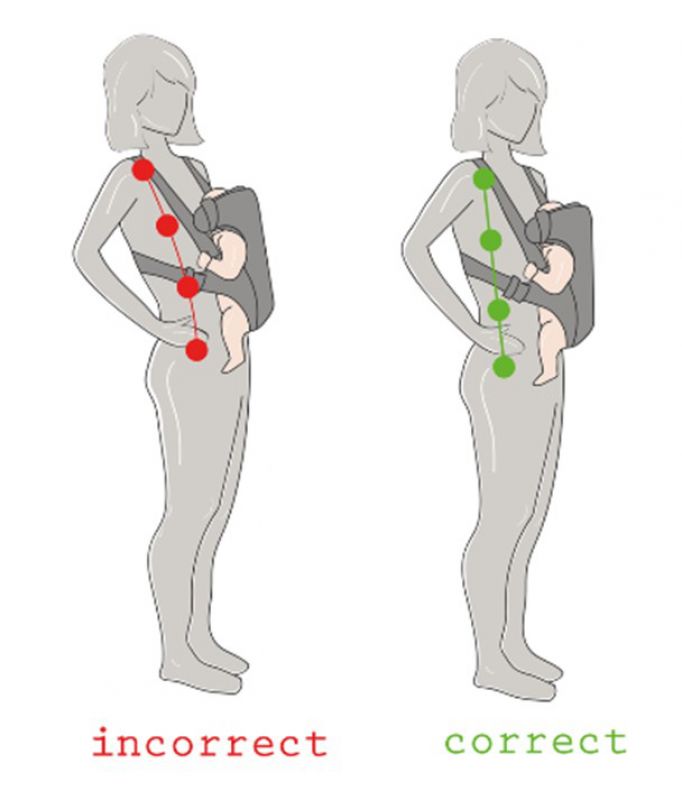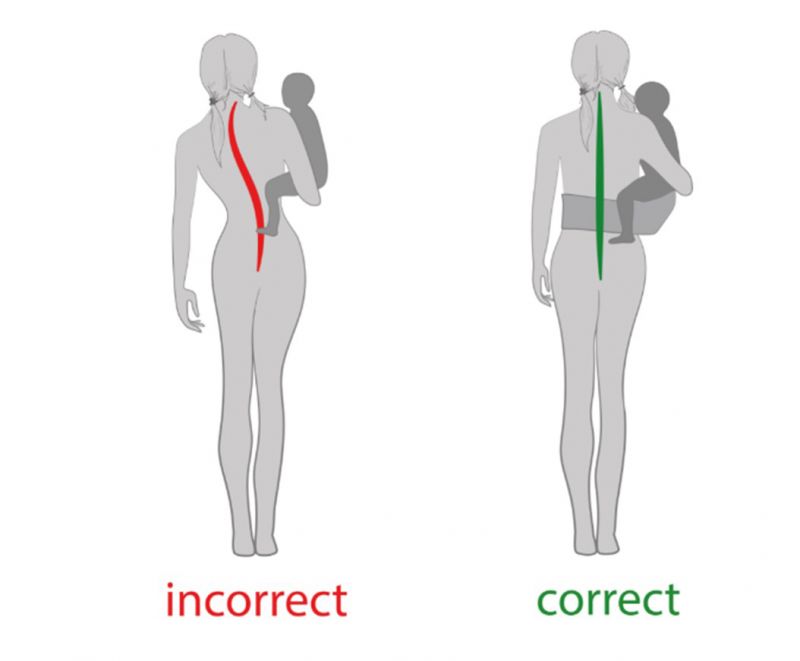Say goodbye to post pregnancy backache

According to worldwide research 50-80% of expecting mothers suffer from lower back pain during pregnancy. In India, the scenario is no different. Spine pain can be extremely excruciating, draining out all your energy. Therefore, it becomes imperative to pay attention to your spinal health.
“During pregnancy, the uterus expands and women typically gain weight in the second trimester. Pregnancy disturbs the natural ‘S’ curve of the spine and shifts the centre of gravity. This change in posture and the weight of a growing baby compresses the discs and the nerves in the spine. Sometimes this problem doesn’t correct itself after childbirth,” shares Dr Garima Anandani, Senior Spine Specialist and Clinical Director, QI Spine.
 It is important ot get the posture correct to reduce backache. (Photo: QI Spine Clinic)
It is important ot get the posture correct to reduce backache. (Photo: QI Spine Clinic)
The causes of postpartum back pain could range from a variety of reasons, beginning from the myriad of changing hormones to change in posture, weight and sleeping positions. Here are few causes for postpartum back pain:
Hormones: During pregnancy, the body produces a hormone called Relaxin, which is responsible for loosening the muscles and the joints that assist in childbirth which may result in weakening of spinal joints, ligaments and muscles leading to back pain post pregnancy.
Postural Stress post-pregnancy: The additional amount of pressure on the spine caused by bending and lifting the baby can weaken the spine, thus causing pain. Holding the baby in a wrong way during breastfeeding could be another cause of pain in the upper, middle and lower back.
Sleep deprivation: Continuous lack of sleep may stress and strain the back muscles, leading to increased back and neck pain.
Emotional stress: A number of psychological conditions that new mothers experience, ranging from anxiety to anger further aggravates their condition.
Lack of post-pregnancy care: Weight gain post pregnancy and lack of physical activity at times is a major hindrance to the recovery of a woman’s body.
Here are some tips to reduce back pain postpartum back pain:
Exercise is the key: gentle exercise can help in strengthening the muscles post-delivery. These exercises include core strengthening exercises, walking, deep belly breathing with abdominal contractions, kneeling pelvic tilts, kegels, yoga, head lifts and shoulder curl ups. One must consult a health care professional before starting any health care regime.
Get your posture correct: Sloughing strains the spine. Maintaining correct body mechanisms involves bending down from the knee while lifting the child and lifting the baby up to the breast to avoid bending or hunching while breastfeeding. While sleeping and sitting, correct postures need to be maintained. For example, one can use proper lumbar rolls while sitting and keep pillows between the knees while sleeping.
 Post pregnancy holding your baby in the right posture can be comforting for your back. (Photo: QI Spine Clinic)
Post pregnancy holding your baby in the right posture can be comforting for your back. (Photo: QI Spine Clinic)
Muscle relaxation: Muscle soreness can be soothed with a professional massage or hot compress. One can also engage in medication or relaxation techniques to reduce stress.
Protein rich diet: Protein inclusion in your diet can strengthen the body, thus aiding recovery. Milk, cheese, yoghurt, fish, meat and beans are good source of protein for mother’s post-pregnancy.
Back pain is a common phenomenon to experience back pain post child birth. However, it should be kept in mind that back pain can drain you and is not good for the overall well-being.

